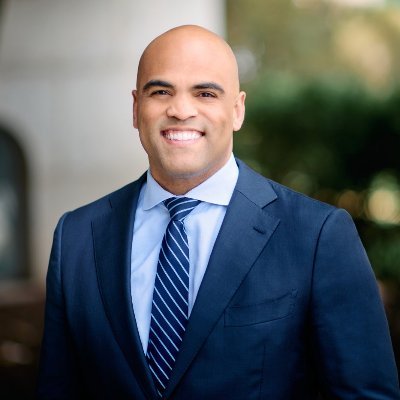Friday was a bad day.

Texas has taken a major step toward banning transgender minors from getting puberty blockers and hormone therapy — care that medical groups say is vital to their mental health — after the state House gave Senate Bill 14 initial approval Friday.
Trans Texans and LGBTQ advocates consider the bill one of the most consequential pieces of legislation in this year’s legislative session. It would ban trans people younger than 18 from getting certain transition-related care. Kids already accessing treatments would have to be “weaned off” in a “medically appropriate” manner, the bill says. It also bans transition-related surgeries, though those are rarely performed on kids.
The House’s vote to advance the bill followed over five hours of pushback from Democrats, who had successfully delayed the bill on a technicality twice last week. On Friday, Democratic lawmakers once again tried to raise points of order, a parliamentary maneuver aimed at delaying or defeating bills, but their efforts failed this time. Some Democrats, though, defected and voted in favor of the bill.
The initial vote was 92-48, though three Democrats later said they accidentally voted in favor and meant to oppose the bill. Still, nine other democrats voted for the bill, according to the vote record. State Rep. Charlie Geren of Fort Worth was also listed as voting against the bill — the only Republican to do so — even though he is a co-sponsor of the legislation and later tweeted that he was proud of its initial passage.
As SB 14 advances, Texas — home to one of the largest trans communities in the country — is moving ever closer to joining over a dozen states in restricting transition-related care for minors. The American Civil Liberties Union and Lambda Legal have already raised legal challenges against several of them. And judges have so far blocked the efforts to limit these treatments for trans youth in Alabama and Arkansas.
Pending one more final vote in the House, SB 14 would return to the Senate, which has already passed a version of the legislation that mandates an abrupt cutoff as opposed to a tapering off process.
Trans Texans, their families and medical groups say transition-related care is critical to supporting the mental health of trans youth, who are already facing higher risks of depression and suicide than their cisgender peers. Getting access to these treatments, they say, is time intensive and requires multiple medical evaluations. Parents are included in decisions about what treatments, if any, are best for individual children.
“The bill in front of us today is banning health care,” said state Rep. Mary González, D-Clint, while advocating for a failed amendment that would have largely foiled the legislation. “Politics shouldn’t determine health care, period.”
Some Democratic lawmakers, including the nine openly LGBTQ state representatives, stood outside the chamber prior to debate and read letters from trans youth who would be affected by SB 14 and their families. And earlier in the day, LGBTQ Texans and their allies marched to the Capitol to protest the legislation, just over a week after state police forcefully booted scores of them from the Capitol and handcuffed two.
“We’re rising up. The whole LGBTQIA community is fighting back against a group of people who, at their core, don’t want us to exist,” said Danielle Skidmore, a longtime Austin resident and trans woman who came to the Capitol on Friday to protest the bill.
[…]
Several Democratic lawmakers voted for the bill, according to the vote record: state Reps. Alma Allen of Houston, Rhetta Bowers of Rowlett, Harold Dutton of Houston, Tracy King of Batesville, Armando Martinez of Weslaco, Suleman Lalani of Sugar Land, Mary Ann Perez of Houston and Shawn Thierry of Houston. Democratic state Reps. Christian Manuel of Beaumont, Penny Morales Shaw of Houston and Jessica González of Dallas initially voted for the bill, according to a record of the vote, but quickly said those were accidents and that they meant to vote against it.
Thierry, the lone Democrat to publicly speak in favor of SB 14 during Friday’s debate, said she voted for it with “an open heart and clear mind.”
“As a thoughtful legislator, mother, woman of faith and child advocate, I have made a decision to place the safety and well-being of all young people over the comfort of political expediency,” she said.
See here and here for some background. Before we go further, you need to read this Twitter thread from DMN reporter Lauren McGaughy, who has been following up with all of the Dems that had apparently voted Yes on SB14. In short, nearly all of them have said their Yes vote was in error and that they will be voting No on third reading. Tracy King and Shawn Thierry are the only two who confirmed that they intended to vote Yes, while Harold Dutton – who had been voting against most of the Dem-offered amendments to weaken SB14, unlike the others – hadn’t replied as of when I drafted this. I’m very glad to hear this, as I was about to be massively disappointed in some of these people. With some of them, let’s just say this wasn’t so shocking. Shawn Thierry has gone on some kind of bizarre heel turn – she was out there voting for book bans earlier, too – and I look forward to supporting a primary opponent against her. And Harold Dutton is still Harold fucking Dutton. Tracy King has the excuse of representing a district that Greg Abbott won in 2022, for what that’s worth. He qualifies as a disappointment.
Anyway. For those of you thinking well, it’s just drawing a distinction between adults and minors, I will remind you that the Senate passed a bill that would have outlawed this care for adults as well. Once you decide that it’s okay to ban safe and effective medical care for people because you don’t like it, there’s no obvious boundary for that. Cutting off ongoing treatment for however many kids is especially heinous.
(Yes, I believe the Dems who say their vote was in error. It happens. McGaughy confirmed with Charlie Geren that his No vote was in error, too.)
There will surely be litigation over this, as there has been in other states, and at some point SCOTUS will get to decide how much value they believe trans people have. Given their previous lack of care about who gets to access what kind of health care, I’m not optimistic, but it’s all we have until we vote in a different government. Until then, here’s a statement from the All In For Equality Coalition:
The Texas House voted today to advance Senate Bill 14, which will ban evidence-based, life-saving health care for transgender adolescents in Texas.
S.B. 14 bans puberty blockers and hormone therapy, which have been used and proven to treat gender dysphoria for decades.
Hundreds of Texans came to the State Capitol on May 2 to oppose the bill banning essential health care for trans youth — and were met with violence and arrests. The All in For Equality coalition condemned the clearing of the Capitol by authorities.
The bill passed the Texas House late Friday evening by a vote of 92 to 48.
The following quote can be attributed to Ash Hall (they/them), Policy & Advocacy Strategist at the ACLU of Texas:
“This is a dark day in Texas. Our legislature has turned its back on science, parents, and the safety and lives of children. Our hearts break for transgender young people in our state who have repeatedly been attacked by their own government for callous political gain. This legislation is vicious, it’s cruel, and it’s blatantly unconstitutional. The bigotry and discrimination in this bill will not stand up in court and it will not stand the test of time. Transgender people have always existed and always will, and the vast majority of Texans do not support harming them or cutting off this life-saving health care.”
The following quote can be attributed to Ricardo Martinez (he/him), CEO at Equality Texas:
“I am beyond angry that we must keep showing up to defend the dignity, privacy and liberty of our neighbors. Banning health care that literally saves lives should not be an option. The public debate about the value of our lives is not legitimate and it is out of touch with true Texas Values. This is part of a nefarious plan to eliminate us from public life. But it won’t work. We will not stop fighting for our rights. Not now, not ever.”
The following quote can be attributed to Emmett Schelling (he/him), Executive Director, Transgender Education Network of Texas:
“Today was ugly, but I am reminded that one of the fundamental parts of our trans experience is the deep understanding that we are all we have. Queer and Trans Texans are united in the fight to build a world in our vision on our terms.”
The following quote can be attributed to Sarah Warbelow (she/her), Legal Director for the Human Rights Campaign:
“Ill-informed and ill-intentioned politicians are prohibiting Texas parents from accessing best practice medical care for their children. S.B. 14 will be devastating to trans youth and their families – and it’s just the first of the many anti-LGTBQ+ bills that Texas lawmakers are working to pass. When this bill becomes law, Texas families will be banned from accessing medically necessary, safe, age-appropriate health care backed by decades of research and supported by the entire American medical establishment. Legislators are sending a clear message that Texas is not a safe place for LGBTQ+ people. We will not stop fighting these discriminatory measures.”
The following quote can be attributed to Shelly Skeen (she/her), Senior Attorney, Lambda Legal:
“Texas legislators seem hell-bent on the targeting of transgender Texas youth, their families, and their doctors. It was not enough to threaten parents with charges of child abuse for following their doctor’s orders, but now they want to block access to all medically necessary care against well-established standards, peer reviewed research, and the advice and recommendations of every major medical association. This bill risks the health, well-being, and very lives of trans adolescents in the Longhorn State. First and foremost, Texas legislators need to listen to transgender adolescents, their families and their doctors instead of passing discriminatory laws that endanger our community. Trans youth in Texas deserve protection from legislators, not harm that endangers their futures.”
The following quote can be attributed to Marti Bier (they/them), Vice President of Programs at Texas Freedom Network:
“I am floored by the cruelty and moral hypocrisy of this bill. Access to transgender health care can be lifesaving for transgender youth; this evidence-based health care is supported by every major medical association nationwide. Still, members of our State Legislature are determined to insert themselves in the private health decisions made between loving, affirming families and their trusted medical providers. This has been a devastating day for our community and the families this bill will undoubtedly displace or tear apart. We will never stop fighting alongside our partners to create a future where transgender youth, adults, and their families are safe and free to exist in their own home state.”
If you or someone you know needs mental health resources or support, please visit:
— Trans Lifeline at (877) 565-8860 or https://www.translifeline.org
— Trevor Project at 866-488-7386 or https://www.thetrevorproject.org/
One more thing: The story reference a recent poll that among other things indicated that a majority of respondents claimed not to know any trans people. I’m here to tell you, you’re probably wrong about that. Your kids or your grandkids likely have a friend or classmate who is trans. Some of the fellow parents you met at your kids’ schools are the parents of a trans kid. Your coworkers, your neighbors, your high school and college classmates, the people you know from church or your favorite restaurant, they have trans people in their lives, or maybe they’re trans themselves. Maybe they haven’t let you in on that knowledge, and if so you can ponder the reasons for that, but they’re there. They’re not going away. And they have every right to live their lives. It would help them a lot if the state got off their backs and out of their doctor’s offices. That’s not much to ask.
























